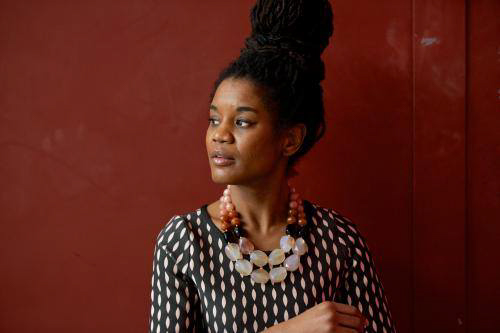‘Dead and Breathing’ stages ethics of euthanasia

Chisa Hutchinson’s new play “Dead and Breathing” is on show at the National Black Theatre until the 23rd of November.
November 11, 2015
Premiering in New York last week at Harlem’s National Black Theatre, director Jonathan McCrory’s production of “Dead and Breathing” explores a contemporary landscape of life and death social issues using sassy, generational comedy between two black women. The star of writer Chisa Hutchinson’s lean, two-woman show is Carolyn, a remarkably spry Lizan Mitchell, as its titular widow who is approaching her second year of hospice care. Carolyn is dying from cancer. Her nurse, Veronika (Nikki E. Walker) completes her job with diligence, speaking enthusiastically about her Christian faith in between bathing Carolyn. Carolyn is a resolute, fire and brimstone atheist marching to her approaching grave.
The tension between the two characters’ beliefs is essential to “Dead and Breathing’s” dramatic arc: Carolyn has had enough of waiting to die and wants to use euthanasia. Veronika’s moral values are put to the test when Carolyn offers her $87 million to pay off her debts and live a comfortable life.
The setting of “Dead and Breathing” is a wealthy, diverse town. A king-sized bed centers the stage, and behind it there is a wall displaying empty frames, which are referred to as the mass of college degrees that Carolyn used her wealth to accumulate.
But Hutchinson’s play smartly doesn’t fall on the sword of its deal-with-the-devil moral dilemma, which feels too unbelievable to sustain the entire play. Running in line with the NBT’s theme of “Policing of the Black Body,” the values at play in “Dead and Breathing” stay entrenched in the politics of black womanhood interacting with the harsh contours of class. For Veronika, the $87 million represents not just the power to be the woman she wants to be, but also Carolyn’s impending death. After Carolyn delivers a biting monologue of self-loathing — “I have never done a single good thing for anybody,” she says, delivered with Monty Burns-like pride — Veronika pleads: “Is this what an angel of mercy looks like?”
A late reveal that veers the plot into the territory of gender identity comes as a jolt; the earlier scenes of class struggle reveal themselves to be even more than just between a wealthy patron and her employee. The political ground that Hutchinson strives to cover is commendable, if reaching at times. Despite the discussion of race and class throughout, “Dead and Breathing” is ultimately a very funny play. Every third line is a mocking jab at generational divides and garner plenty laughs from the theater’s intimate corners. Her quickest play to be picked up yet, “Dead and Breathing” has made playwright Chisa Hutchinson a voice to watch.
“Dead and Breathing” is playing at the National Black Theater until Nov. 23.
Email Andrew Karpan at [email protected].














































































































































